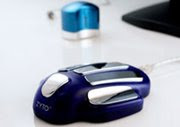What is attention deficit hyperactivity disorder or ADHD? ADHD symptoms include the inability to pay attention, concentrate or complete tasks and may include hyperactivity.
It can be difficult to accurately diagnose ADHD. Health professionals should be provided a detailed medical history of the client, as well as observe the clients behavior. Behavioral signs that may be indicators are as follows:
Attention Problems: disorganized, procrastination has problems starting and completing tasks, impulsive talking, inability to stay focused/on task.
Motor skill Problems: Difficulty maintaining visual attention, problems with motor skills, hyperactivity, the constant movement of legs & hands, fidgets excessively
Mood Problems: low self esteem, depressed, fits of anger, inappropriate interruptions, anxiety in group/social settings, and feeling out of control
Adults may experience addictions such as alcohol and drug abuse, abusive relationships and/or become criminal offenders. They also have difficulty holding a job or maintaining meaningful relationships.
There are no physical abnormalities but research has found biochemical and genetic changes in people with ADHD. Low Neurotransmitters such as Dopamine can cause compulsive and risk taking behavior and Low Serotonin levels are associated with increased aggression. Research also relates defects in the genes that control the dopamine receptors which are associated with addictions, compulsions, obesity and other personality traits.
The use of conventional treatments includes stimulant medications which work to suppress all spontaneous behavior. These are short term and come with some severe side effects such as insomnia, anxiety, fatigue, depression, withdrawal, headaches and may even develop into emotional disturbances such as obsessive compulsive behavior, thereby initiating the need for antidepressant, sedatives and mood stabilizers. It is easy to see how conventional treatment can lead to vicious cycle of medicating symptoms. Stimulant medication has also been linked to increased blood pressure, liver damage, and lack of appetite, growth problems and a higher incidence of drug addiction.
With all the problems that can result from conventional treatments it is comforting to know that there are safer and effective alternative approaches to treating ADHD. These therapies include exercise, diet, supplementation, environmental changes and a mind/body approach. The following are some steps you can take using behavioral techniques.
Avoid Stressful Situations such as information overload.
Practice EFT Tapping (Emotional Freedom Technique) and Meditation
Utilize Biofeedback to encourage calmness which increases impulse control and attention.
Evaluate the environment for molds, fungi, chemicals and heavy metals
Exercise Routine with combination of moderate to vigorous activity
Daily Routine is important to establish with specific times to go to bed, get up, meals, play, and do homework, games, TV, exercise, etc.
Eye Contact should always be maintained when speaking to someone with ADHD
Diet should be addressed and care taken to avoid processed foods, food additives and sugar. Increase intake of foods high in vitamins and minerals focusing on complex carbohydrates.
There are also nutritional supplements and herbal remedies that may improve the symptoms of ADHD. Supplementation of any kind, especially for children should be recommended by a qualified physician or practitioner.
These alternative therapies can be a safe and effective approach in managing ADHD. For more information please contact a natural therapies professional.
Pamela A Heyen
www.heyenwellnesstherapies.com
pam@heyenwellnesstherapies.com
Subscribe to:
Post Comments (Atom)



1 comment:
Pamela - I really appreciate you bringing alternative treatments for ADHD to light. Many people (children, in particular) are taking harmful medications they may not even need! Misdiagnosis is common and not something one would want to fool with! Thank you for all the info!
Post a Comment